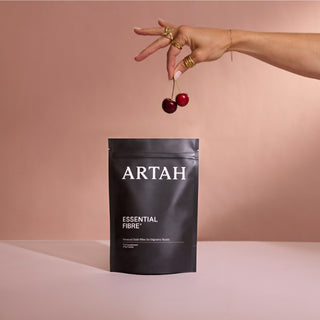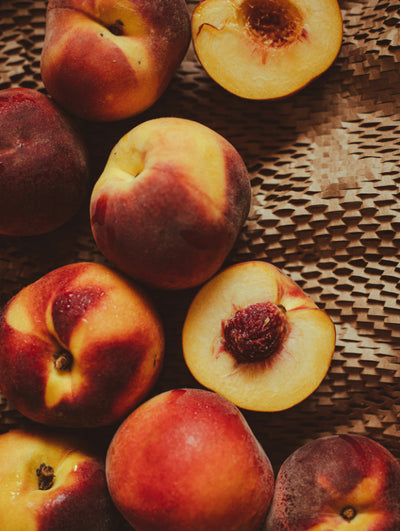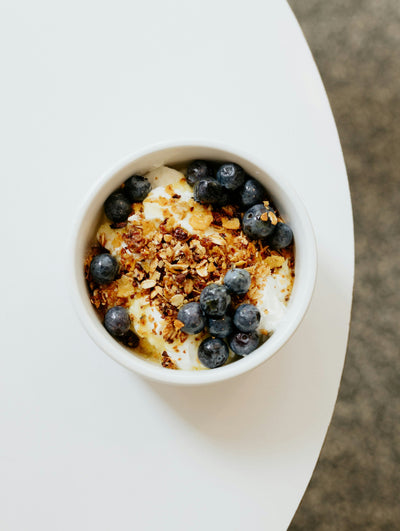An estimated 2.25 billion cups of coffee are consumed around the world each day – the day has often not started until we get our morning hit of caffeine at our favourite coffee shop. But while many of us are on a constant quest to cut down, coffee is associated with myriad health benefits – research has found that those who drink coffee are at lower risk of all-cause mortality (or death from a number of different causes) than those who don’t.
Caffeine is a key ingredient in our daily brew, and works by blocking the neurotransmitter adenosine, which plays an essential role in our sleep-wake cycle. Adenosine naturally builds up through the day, prompting us to feel tired. However, when we’ve had a hit of caffeine, it binds to our adenosine receptors, essentially preventing them from working. In turn, this increases our levels of two other neurotransmitters – dopamine and norepinephrine – which gives us energy, improves our mood and combats sleepiness.
Ultimately, caffeine is a nervous system stimulant and people respond to it differently – not to mention many of its effects are dose dependent. But for those intrigued as to how it can help boost our health, and the best ways we can drink it, here we share some of the facts.
It’s Rich In Polyphenols
Coffee is a rich source of polyphenols, which are plant compounds that have antioxidant and anti-inflammatory properties – they have been shown to help prevent chronic disease, neurodegenerative disorders (such as Alzheimer’s and Parkinson’s) and cancer, while also supporting overall health and cognition, amongst other things. So actually incorporating a high quality coffee into your life can be a helpful addition to your wellness routine. (1,2,3)
It’s Good For Your Gut
A large study of 20,000 participants found that those who drank coffee – decaffeinated included – regularly had a specific “good” bacteria (Lawsonibacter asaccharolyticus) that is associated with successful digestion and nutrient absorption in the gut. Why? Well, coffee seems to have a prebiotic effect on our gut bacteria and feeds the good ones, leading to increased diversity. With more diversity comes better health outcomes, which leads to a positive effect on nearly all of the body’s systems. (4)
It Can Supercharge Your Workout
It’s no secret that a cup of coffee delivers a sense of get-up-and-go to its drinker, so it might come as no surprise that it’s a great conduit for a successful workout. One study found that middle-aged – often tired – women, who drank one or two cups of coffee a day were 17 per cent more likely to meet their daily workout goals than those who didn’t. It’s also a great tool for those wanting to improve their performance, with a study of amateur cyclists finding that imbibing coffee before a time trial-performance improved their speed by an average of 1.7 per cent. (5, 6)
What Does A Good Coffee Look Like?
For the greatest health benefits, seek out high quality, freshly ground coffee beans and drink it black. Research suggests that roasted coffees have a higher antioxidant capacity than green coffees, so if you enjoy a roasted blend, it’s a great option. (7)
How To Hack Your Coffee
From headaches to anxiety, stress to insomnia, drinking too much coffee is also a thing – and there are a couple of ways to slow its impact on our metabolism. Firstly, make sure you have a good hydration status before you drink it – 500mls with some of our natural electrolyte supplement, Cellular Hydration, will help prevent spikes in irritability and anxiousness. It can also help to wait until after breakfast to drink your first cup of the day, because food will slow down its absorption into the bloodstream, and thereby soften that “hit” you can feel while drinking it.
On The Flip Side, It Can Affect Your Skin
While coffee is a beloved beverage for many, it has the potential to trigger or worsen rosacea flare-ups due to several factors. Coffee, the caffeinated kind, is known to cause vasodilation, the widening of blood vessels. This can lead to increased blood flow, causing redness and flushing, which may aggravate rosacea symptoms. Caffeine stimulates the release of cortisol, the body’s stress hormone, which can exacerbate inflammation in some individuals. Since stress is a common trigger for rosacea flare-ups, high caffeine intake may indirectly worsen symptoms. (8,9)
Coffee is a diuretic, meaning it can increase urine production. This can lead to dehydration when consuming coffee, especially if it’s not balanced with adequate water intake. This can affect skin, making it appear dull, rough, and more prone to irritation. In fact, dehydration can worsen the appearance of fine lines and make the skin more sensitive overall. However, moderate coffee consumption does not appear to lead to significant dehydration, especially when individuals consume water alongside their coffee. The diuretic effect of caffeine may only be noticeable in cases of excessive intake or when hydration is otherwise insufficient. We suggest to properly hydrate with Cellular Hydration and you can go forth and savour every sip.
It Can Worsen Anxiety
Caffeine stimulates the central nervous system (CNS), leading to the release of adrenaline and cortisol (the stress hormone). This response can mimic or intensify the symptoms of anxiety, such as restlessness, heart palpitations, and increased blood pressure. It also increases the release of norepinephrine and dopamine, which can heighten sensory sensitivity. For some individuals, this heightened state of alertness can lead to feelings of anxiety or panic. (10,11)
1. Cory H, Passarelli S, Szeto J, Tamez M, Mattei J. The Role of Polyphenols in Human Health and Food Systems: A Mini-Review. Front Nutr. 2018 Sep 21;5:87. doi: 10.3389/fnut.2018.00087. PMID: 30298133; PMCID: PMC6160559.
2. Nila IS, Villagra Moran VM, Khan ZA, Hong Y. Effect of Daily Coffee Consumption on the Risk of Alzheimer's Disease: A Systematic Review and Meta-Analysis. J Lifestyle Med. 2023 Aug 31;13(2):83-89. doi: 10.15280/jlm.2023.13.2.83. PMID: 37970326; PMCID: PMC10630722.
3. Safe S, Kothari J, Hailemariam A, Upadhyay S, Davidson LA, Chapkin RS. Health Benefits of Coffee Consumption for Cancer and Other Diseases and Mechanisms of Action. Int J Mol Sci. 2023 Jan 31;24(3):2706. doi: 10.3390/ijms24032706. PMID: 36769029; PMCID: PMC9916720.
4. Manghi, P., Bhosle, A., Wang, K. et al. Coffee consumption is associated with intestinal Lawsonibacter asaccharolyticus abundance and prevalence across multiple cohorts. Nat Microbiol 9, 3120–3134 (2024). https://doi.org/10.1038/s41564-024-01858-9
5. Torquati L, Peeters G, Brown WJ, Skinner TL. A Daily Cup of Tea or Coffee May Keep You Moving: Association between Tea and Coffee Consumption and Physical Activity. Int J Environ Res Public Health. 2018 Aug 22;15(9):1812. doi: 10.3390/ijerph15091812. PMID: 30135386; PMCID: PMC6163361.
6. Clarke, N. D., & Richardson, D. L. (2021). Habitual Caffeine Consumption Does Not Affect the Ergogenicity of Coffee Ingestion During a 5 km Cycling Time Trial. International Journal of Sport Nutrition and Exercise Metabolism, 31(1), 13-20. Retrieved Apr 2, 2025, from https://doi.org/10.1123/ijsnem.2020-0204
7. Pérez-Burillo S, Mehta T, Esteban-Muñoz A, Pastoriza S, Paliy O, Ángel Rufián-Henares J. Effect of in vitro digestion-fermentation on green and roasted coffee bioactivity: The role of the gut microbiota. Food Chem. 2019 May 1;279:252-259. doi: 10.1016/j.foodchem.2018.11.137. Epub 2018 Dec 5. PMID: 30611488.
8. Li S, Chen ML, Drucker AM, Cho E, Geng H, Qureshi AA, Li WQ. Association of Caffeine Intake and Caffeinated Coffee Consumption With Risk of Incident Rosacea in Women. JAMA Dermatol. 2018 Dec 1;154(12):1394-1400. doi: 10.1001/jamadermatol.2018.3301. PMID: 30347034; PMCID: PMC6583325.
9. Yang Z, Zhao W, Hu M, et al. Quality of life, sleep and anxiety status among patients with rosacea in the Yunnan plateau region: A 2-year retrospective study. Skin Res Technol. 2024; 30:e13616. https://doi.org/10.1111/srt.13616
10. Ribeiro-Carvalho, A., Dutra-Tavares, A.C., Filgueiras, C.C., Manhães, A.C., Abreu-Villaça, Y. (2022). Caffeine and Anxiety-Like Behavior. In: Patel, V.B., Preedy, V.R. (eds) Handbook of Substance Misuse and Addictions. Springer, Cham. https://doi.org/10.1007/978-3-030-67928-6_80-1
11. Liu C, Wang L, Zhang C, Hu Z, Tang J, Xue J, Lu W. Caffeine intake and anxiety: a meta-analysis. Front Psychol. 2024 Feb 1;15:1270246. doi: 10.3389/fpsyg.2024.1270246. PMID: 38362247; PMCID: PMC10867825.
Disclaimer: The information presented in this article is for educational purposes only and is not intended to diagnose, prevent, or treat any medical or psychological conditions. The information is not intended as medical advice, nor should it replace the advice from a doctor or qualified healthcare professional. Please do not stop, adjust, or modify your dose of any prescribed medications without the direct supervision of your healthcare practitioner.



















































